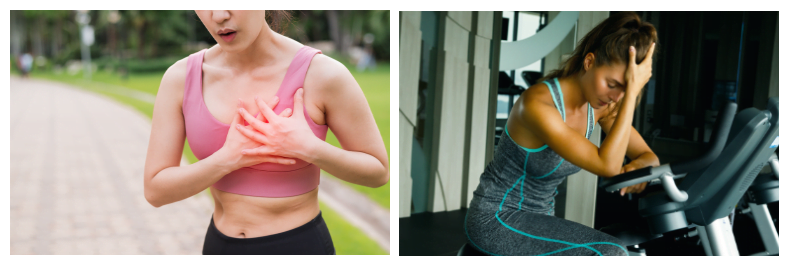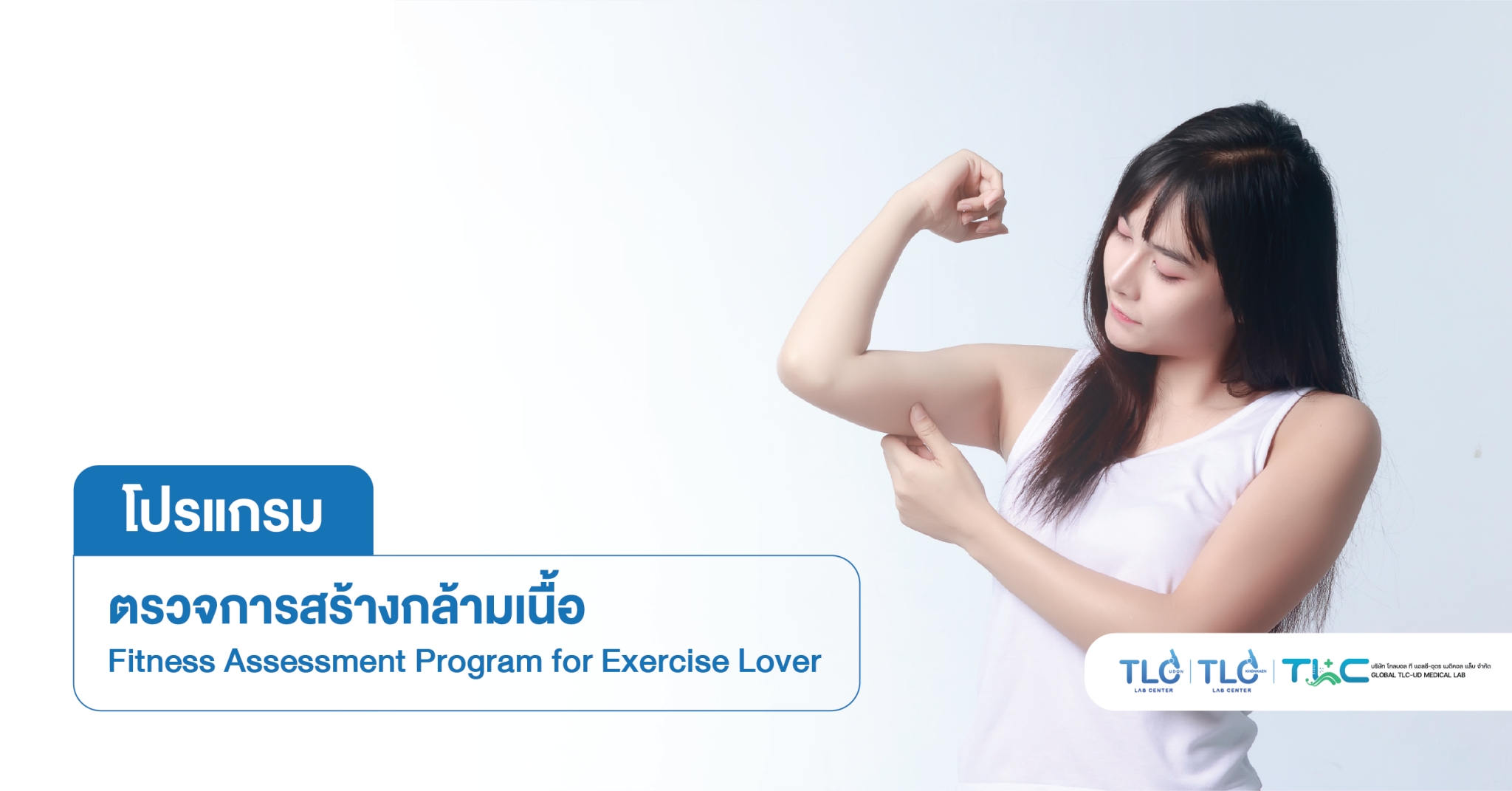Healthy exercise Become effective, but how to start?
Happiness starts from being healthy, and good health comes from exercise, which is one of the important factors to help promote healthy for people of all ages. Due to exercise contains with many usefullness the both of physically and mentally. If practiced regularly, it will lead to an extremely good overall quality of life.
If, due to changes in lifestyle, most of our daily routine or work is not physically active, reducing exercise can affect our health. Regular and appropriate exercise will help the body to be healthy, preventing sickness, treating and regeneration the body.
Benefits of Healthy Exercise:
- Exercise can help prevent cancer.
- It makes the mind cheerful.
- A strong body boosts immunity.
- Exercise also helps prevent heart disease, which is the second leading cause of death in Thailand.
- Prevent osteoporosis and reduce the incidence of fractures of the spine and hip bones.
- Helps reduce blood lipids, cholesterol and triglycerides. Reduce risk factors for cardiovascular disease, stroke, and paralysis.
- This improves agility, balance, and reduces slips and falls and injuries.
- Prevention and treatment of diabetes, hypertension, allergies.
- It helps to digest and absorb food, reduces bloating, and flatulence. The excretory system improves. Aids slimming
- Reduces the chances of infections
- Helps concentration at work.
- Helps treat depression and reduces stress.
- Improves the quality of sleep
- Slows down aging, and deterioration of physical fitness, making you look younger, prolonging your life.

Types of exercise :
Each type of exercise has different benefits for the body. They are divided into 3 forms:
1. Exercises that focus on the strength of the heart system,lung and blood vessels (Cardiovascular Respiratory Exercise) or Cardio exercise for short, This exercise type helps strengthen the endurance of the respiratory and circulatory systems, such as:
- jogging
- swimming
- Cycling
- Aerobic dance
Exercise effectively: using these exercise types, you should do them
- continuously for about 20-60 minutes, at least 3 times a week.
- Importantly, they should be done as a gradient, from light to medium. When the body is ready, gradually go up to a heavier level.
2.Resistance Exercises: : insufficient muscle strength and endurance prevents the daily routine are not according the exercise needs. Although it does not cause death from cardiovascular diseases, it can cause problems to the body and impair the quality of life, especially for the more elderly group. If they lack strength in this area, they will easily fall and lose their balance more easily. Osteoporosis and easy fracture of bones when falling can result.
This form of exercise is as follows:
- Weightlifting, or weightlifting resistance exercises come in a variety of forms, such as push-ups or sit-ups. Use resistance from elasticated bands. Apply resistance to various household items such as bags, water bottles, or books.
To exercise effectively this way, it is recommended that :
- You should complete all parts once a week.
- Or you can use the alternating method, which is to perform part today, maybe the arms for example, then rest for a day and alternate with another form of exercise, using a different part such as the legs.
Exercising this way will help maintain muscle mass. It increases the metabolism of the body very well.
3. Flexibility Exercises:
- yoga
- Pilates
This form of exercise will help the muscles become more flexible. This must be done slowly to the point where you feel tension or discomfort, but not pain. Training in flexibility of the body is necessary for people of any age, especially the elderly or people who have to work hard, as it can reduce injuries and body fatigue.

What kind of exercise should each person choose? Consider :
The readiness of one’s own body, such as whether there are any underlying diseases. How fit you are. You have to consider these carefully before starting.
When exercising, you should start practicing gradually according to your physical condition. Start gently then increase more with practice.
- It is important that the timing is appropriate. Excessive exercise should not be done, which in most cases should not exceed 1 hour at a time and 3-5 times a week , because excessive exercise can cause more harm than good. This is to ensure that the exercise process is effective.
How to exercise effectively?
They should be aerobic exercises, which means that the muscles use oxygen to generate energy while exercising, and that they are exercises that use large muscles such as arms and legs at the same time, and continue for at least 20 minutes.
To achieve health benefits, you must exercise at least once a day, 20-30 minutes at a time, 3-5 times a week.
- The intensity of the exercise should be moderate to hard, i.e. exercise with a pulse between 60-80% of the maximum heart rate. The maximum heart rate per minute is 200 for a 20-year-old for example.
A 65-year-old exerciser has a maximum heart rate of 220 minus 65 = 155 beats/minute.
60% of maximum heart rate (155×60)/100 = 93 beats/min
- 80% of maximum heart rate (155×80)/100 = 124 beats/min. Therefore, the pulse (heart rate) of a 65-year-old person while exercising should be between 93 and 124 beats/minute.
เพราะฉะนั้นชีพจร (อัตราการเต้นของหัวใจ) ของคนอายุ 65 ปี ขณะออกกำลังกายควรอยู่ระหว่าง 93-124 ครั้ง/นาที
- Measure the pulse (in the wrist or neck) before, during, and after exercise.
- Warm up for 5-10 minutes before exercising to avoid injury to muscles, joints, and ligaments.
Cool-down for 5-10 minutes after exercising to remove waste products created such as lactic acid and potassium salts. Stopping the exercises abruptly will cause insufficient blood to flow back to the heart, resulting in an insufficient oxygen supply which can make you faint.
- Exercise regularly, don’t stop doing so.
- The place for exercise should be a flat area, not steep or uphill or downhill. Ensure that it is well ventilated.
- Exercises should be performed at least 2 hours after eating. About 15 minutes before exercising, drink 1 glass of water, and another glass after exercising to compensate for the body water lost to sweat from exercise.
- If there is an accident or abnormal symptoms appear, ensure that you can receive help quickly.
Stop exercising if or when these symptoms appear :
- Chest tightness
- Abnormal heartbeat
- Dizziness, numbness, palpitations, excessive tiredness, panting, unable to breathe fully.
- Abnormal fatigue

Preparation before exercise :
- Eat at least 1-2 hours before exercise.
- Wear comfortable clothes to make it easier to move your body.
- Wear shoes that fit well and are suitable for exercise.
- Warm up your body 10 minutes before every exercise session.
- Start exercising slowly with low-intensity exercises.
- Always drink water before and after exercise.















